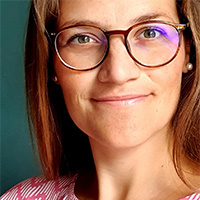2 December, 18:00-20:00
Protestant Churches under the Influence of Nationalism
Historical Examples.
Dr. Peter Morée (Charles University Prague, Protestant Theological
Faculty)
How has the relationship between religious/confessional and national identity developed in different regions of Europe over the course of the 20th century? A look at this diversity shows that the relationship between national and religious/confessional identity does not occur simultaneously and also changes over time. Thus, the approximate equation of both aspects can be found as well as the complete opposition of the two. In many cases, this very question has led to tensions and divisions within the individual churches. In this lecture, the question of the relationship between religious and confessional identity in the twentieth century will be examined from a historical perspective using concrete examples.

A quote from
Peter Morée (Charles University Prague)
“The faith we have in common defines us, not ethnic or national differences. This is the ecumenical answer of the churches to the temptation of nationalism. And yes, at the same time we need to relate to our particular contexts and histories. The question is: where is the line between identifying with particular national traditions and being faithful to the universality of the embracing love of Christ?”

summary
by Mirjam Sauer (Evangelischer Bund)
Peter Morée, church historian from Prague, gave a lecture on the challenging topic “Protestant Churches under the Influence of Nationalism” at the Digital Academy on December 2, 2021. In two hours, more than 20 participants experienced theoretical impulses that gained concrete form through examples from art and architecture. In small groups, the participants from numerous European countries had several opportunities for direct exchange. The moderator of the evening was Oliver Engelhardt (CPCE).
In terms of content the evening had three parts: First Morée outlined what role religion has played in different nationalisms. In the course of the emergence of European nation states it became clear that nationalisms provide identity-forming origin narratives that determine belonging and non-belonging. In these newly created narratives, religion becomes an expressive figure of national history. This is also shown by the fact that Protestant reformers were interpreted as personifications and heroes of the nation. There was a sacralization of the nation and a nationalization of religion. Morée impressively illustrated this thesis by means of sacralized national monuments, which architecturally align themselves with cathedrals and serve to celebrate the nation.
In a second step, the expert on church history of the New and Modern Era made clear that the idea of nations and nationalisms found their way into theology. The nation, for example, was seen as part of God’s creation, and religion as the soul of the nation. The same could be observed in the ecclesiology. In ethnolinguistic concepts of the church, national affiliation also determines church affiliation. In the extreme case, such a conception of church leads to a legitimization of so called holy wars. The counter design to this is a strict separation of nation and theology.
In the concluding third step, Morée made it clear that the ecumenical movement was ultimately the churches’ response to nationalisms. He summarized his remarks with the words: “The faith we have in common defines us, not ethnic or national differences. This is the ecumenical answer of the churches to the temptation of nationalism. And yes, at the same time we need to relate to our particular contexts and histories. The question is: where is the line between identifying with particular national traditions and being faithful to the universality of the embracing love of Christ?”
In the final discussion it became clear that with this question Peter Morée had hit the core of many discussions in the round tables.